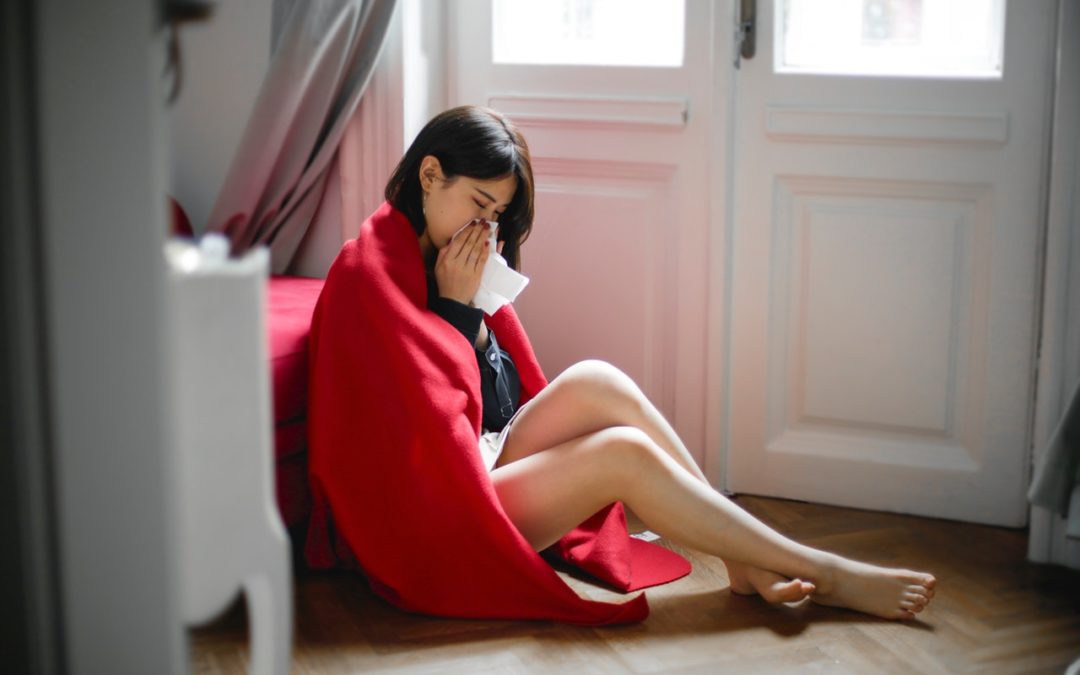COVID-19 is a new strain of coronavirus that originated in Wuhan, China in December 2019, and has since spread throughout the world. The World Health Organization (WHO) has recently classified it as a pandemic. The gravity of this pandemic has caused certain countries and cities to self-isolate, implement lockdowns, ban air travel, and prohibit gatherings of over 50 people. Sports and events throughout the United States and Canada have been cancelled or postponed. Some travellers and vacationers are stuck, quarantined on cruise ships, and schools and workplaces are shutting down. The media is covering this pandemic constantly. So, considering all of the above, it’s no wonder people are feeling overwhelmed, panicked, anxious, and fearful. This fear has driven some people to hoard supplies, self-isolate, and be suspicious of anyone who appears to be sick.
All of us experience stress at one time or another; however, some people are more at risk for developing stress related mental health issues due to the coronavirus outbreak. For example:
- People who are more susceptible to contracting and dying from the virus such as those with chronic diseases, complicated immune systems, or the elderly
- First responders (e.g., nurses, doctors, EMTs) who are dealing directly with COVID-19
- People with obsessive compulsive disorders or a compulsive fear of germs
- Children and teens who might not understand what’s going on or who may be misinformed
- People with existing mental health conditions (e.g., anxiety or depression) or problems with substance abuse
Seek Healthy Coping Mechanisms for Stress
High amounts of constant stress can affect people’s mental and physical health. Particularly if they begin to rely on unhealthy coping mechanisms such as: eating junk/comfort food, smoking, drinking alcohol, using drugs, withdrawing emotionally, or lashing out at their loved ones.
It is important to remember to stay strong and focus on coping with your stress in healthy, positive ways that will benefit you and everyone around you. To ensure that you do not deplete your immune system and become more vulnerable to illness, consider the following:
- Don’t neglect your self-care needs (e.g., adequate sleep, meditation, favorite hobby, etc.)
- Exercise and spend time outdoors (e.g., go for a walk or run, garden)
- Eat healthy – fortify your diet with fruits and vegetables
- Avoid alcohol
- Prepare yourselves and family just in case, see the U.S. government’s tips here.
- Reach out for support from friends and family
- Take breaks from focusing on the virus coverage on the media and encourage your family to do the same
Take Knowledge into Your Own Hands
Many people still watch the news for their information, but many people rely on less conventional forms of social media such as Facebook, Instagram, YouTube and Twitter for their news.
Regardless of where you get your news, there is a chance that it may not be completely accurate. Some sites and channels dramatize their coverage for more viewings and better ratings. Learn for yourself the true facts about the coronavirus and get your information from reliable sources, such as the Centers for Disease Control and Prevention (CDC) website and WHO website.
Take a few minutes to read the advised preventative measures from these sites, and share the news on how best to protect yourself and your loved ones. Having this knowledge alone should lessen some stress, as you will understand what exactly the virus is, what its symptoms are, and the precautions you can take to minimize personal risk of contracting the virus (e.g., hand washing/sanitizing, minimal touching of your face, etc.)
Ensure your kids are getting the true facts as well, and try to remain calm for their sake. According to the CDC, “Children and teens react, in part, on what they see from the adults around them. When parents and caregivers deal with the COVID-19 calmly and confidently, they can provide the best support for their children. Parents can be more reassuring to others around them, especially children, if they are better prepared.”
Considering the current situation, it’s completely normal to be anxious. Anxiety can even be helpful, if it spurs you into preventative action. But you can’t let this fear and anxiety take control of your life. If you are having issues coping with stress, reach out to your general practitioner’s office, or to us at Family & Child Development.

